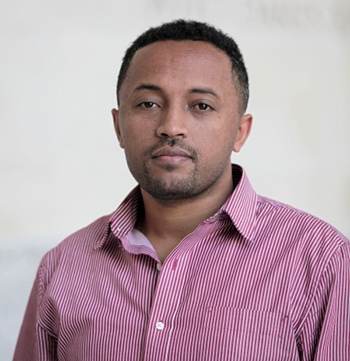Latest News Archive
Please select Category, Year, and then Month to display items
23 April 2020
|
Story Cornelius Hagenmeier
|
Photo Pixabay

The iKudu project, which is an European Union-funded Capacity Building in Higher Education (CBHE) project, has recently launched its blog, which aims to amplify the diverse voices of all iKudu stakeholders. In this space, members of the iKudu team will regularly share their views on the project and related international education topics.
The iKudu project focuses on developing a contextualised South African concept of Internationalisation of the Curriculum (IoC), which integrates Cooperative Online International Learning (COIL) virtual exchanges. The project was launched by the UFS in 2019, together with nine European and South African partner universities. It is funded by the European Union’s Erasmus+ programme with EUR999 881 (approximately R20 million) and is implemented over a three-year period.
The iKudu project is based on the fundamental belief that it is necessary to rethink internationalisation in an uncertain world. First, it is crucial to recognise and transform the power dynamics underlying international academic collaboration. Second, it is essential to develop pedagogies that allow every student to participate in international education, integrating technology where appropriate.
However, while all stakeholders agree on the fundamental tenets of the project and its principal goals, all iKudu stakeholders contribute different perspectives. In the blog, the iKudu stakeholders will provide a space for intellectual discourse on the project and related international education topics, which will allow constructive and critical engagement.
The link to the blog can be found at: https://www.ufs.ac.za/ikudu/ikudu-blogs/Transforming-Curricula-through-Internationalisation-and-Virtual-Exchanges
First UFS/AS Young African Scholar Award winner announced
2016-03-10

Fana Gebresenbet Erda, winner of the first University of the Free State /Africa Spectrum Young African Scholar Award, for his research on political economy.
Photo: Supplied |
Scholarship in African Studies still faces the challenge of capacity-building to increase ownership by authors and institutions from and on the African continent. It also requires more coordinated efforts to provide the space deserved by African authors in the international domain. In 2015, the University of the Free State (UFS) Centre for Africa Studies joined forces with Africa Spectrum (AS) in a bid to address this issue by establishing the UFS/AS Young African Scholar Award.
This award seeks to strengthen efforts to promote internationally recognised African scholarship in African Studies. One way to achieve this objective is through publishing articles by researchers based in Africa and in the diaspora in Africa Spectrum, an accredited journal compiled by the German Institute of Global and Area Studies in Hamburg.
The inaugural award winner
Fana Gebresenbet Erda, a PhD candidate in a Global and European Studies programme jointly offered by the University of Leipzig (Germany) and Addis Ababa University, wrote the winning article for 2015. He will receive a three-year affiliation to the UFS Centre for Africa Studies as a Research Fellow, along with prize money of R5 000, sponsored by the UFS.
His article, The Ethiopian Developmental State in Its Peripheral Lowlands: Large-Scale Land Acquisitions, the Politics of Dispossession and State Remaking in Gambella, Western Ethiopia, argues that development through large-scale land acquisitions in Gambella, Western Ethiopia, belies a state-remaking project under a dispossessive political economy.
Submission now open
Africa Spectrum invites scholars to submit research articles in the context of the award. In October of each year a review committee selects submissions for review. Those eligible to submit are postgraduate students nearing completion of their PhD theses and postdoctoral scholars who were awarded their PhDs no more than five years earlier at the time of the submission deadline. Those submitting should be from Africa or should be affiliated to African institutions.